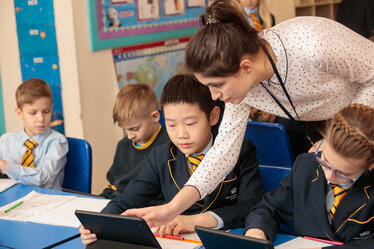Research shows that confident students are more likely to succeed academically.
In fact, several science-backed studies cite self-confidence as the number one predictor of academic achievement. Researchers found that students with greater confidence were more willing to learn and challenge themselves. They were also more motivated, resilient, and capable of dealing with adversity.
At the International School of Moscow, our job is to build and nurture positive self-esteem in children. But what is confidence? And how does it affect academic performance?










